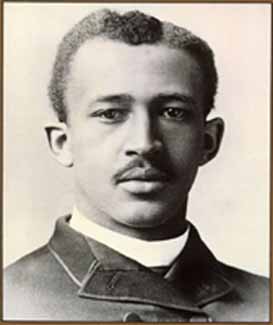
Double-consciousness
William Edward Burghardt Du Bois (February 23, 1868 - August 27, 1963) was an American civil rights activist, a founder of the N.A.A.C.P.,a staunch advocate of Pan-Africanism who trained as a sociologist. He worked as an educator, historian, writer, editor, poet, & scholar. His essays are remarkable for their clarity and vision.
"After the Egyptian and Indian, the Greek and Roman, the Teuton
p. 2,
Teuton and Mongolian, the Negro is a sort of seventh son, born with a veil,
and gifted with second-sight in this American world, -- a world which yields
him no true self-consciousness, but only lets him see himself through the
revelation of the other world. It is a peculiar sensation, this
double-consciousness, this sense of
always looking at one's self through the eyes of others, of measuring one's
soul by the tape of a world that looks on in amused contempt and pity. One ever feels his twoness, -- an
American, a Negro; two souls, two thoughts, two unreconciled strivings; two warring ideals in one dark body, whose dogged strength alone
keeps it from being torn asunder."
. . . .
-4-
The
innate love of harmony and beauty that set the ruder souls of his people a-dancing
and a-singing raised but confusion and doubt in the soul of the black artist;
for the beauty revealed to him was the soul-beauty of a race which his larger
audience despised, and he could not articulate the message of another people.
This waste of double aims, this seeking to satisfy two unreconciled ideals, has wrought sad havoc with the courage and faith and deeds of ten
thousand thousand people, -- has sent them often
wooing false gods and invoking false means of salvation, and at times has even seemed about to make them ashamed
of themselves.
. . . .
-8-
The
power of the ballot we need in sheer self-defence, --
else what shall save us from a second slavery? Freedom, too, the long-sought, we still seek, -- the freedom of life and limb,
the freedom to work and think, the freedom to love and aspire. Work, culture,
liberty, -- all these we need, not singly but together, not successively but
together, each growing and aiding each, and all striving toward that vaster
ideal that swims before the Negro people, the ideal of human brotherhood,
gained through the unifying ideal of Race; the ideal of fostering and
developing the traits and talents of the Negro, not in opposition to or
contempt for other races, but rather in large conformity to the greater ideals
of the American Republic, in order that some day on American soil two
world-races may give each to each those characteristics both so sadly lack. We
the darker ones come even now not altogether empty-handed: there are to-day no
truer exponents of the pure human spirit of the Declaration of Independence
than the American Negroes; there is no true American music but the wild sweet
melodies of the Negro slave; the American fairy tales and folklore are Indian
and African; and, all in all, we black men seem the sole oasis of simple faith
and reverence in a dusty desert of dollars and smartness. Will America be
poorer if she replace her brutal dyspeptic blundering
with light-hearted but determined Negro humility? or her coarse and cruel wit with loving jovial good-humor? or her vulgar music with the soul of the Sorrow Songs?
Merely a concrete test of the underlying principles of the
-9-
great republic is the Negro Problem, and the spiritual
striving of the freedmen's sons is the travail of souls whose burden is almost
beyond the measure of their strength, but who bear it in the name of an
historic race, in the name of this the land of their fathers' fathers, and in
the name of human opportunity.
And
now what I have briefly sketched in large outline let me on coming pages tell
again in many ways, with loving emphasis and deeper detail, that men may listen
to the striving in the souls of black folk.
-10-
The
problem of the twentieth century is the problem of the color-line, -- the
relation of the darker to the lighter races of men in Asia and Africa, in
America and the islands of the sea.
Fifty years earlier:
Olmsted, Journey–the Seaboard
Slave States, See For Background and also-- http://docsouth.unc.edu/nc/olmsted/olmsted.html.
